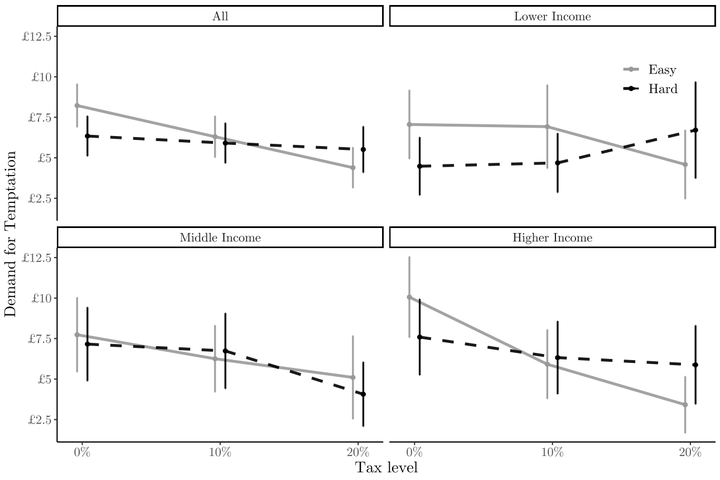Blinded by worries: sin taxes and demand for temptation under financial worries (Theory and Decision)

Abstract
Imposing “sin” taxes has been the preferred way governments tried to discourage the over-consumption of temptation goods for decades. However numerous evidence shows that consumers exhibit behavioral biases which can affect their reaction to taxes. This paper investigates a potential bias and how it affects demand for temptation - financial worries associated with poverty have been shown to shift attention towards pressing needs, often at the expense of forward looking decisions. In an online experiment with UK participants, we randomly induce financial worries and ask participants to allocate a budget between basic necessities and temptation goods in an experimental market. We randomly impose “taxes” on temptation by increasing its price. We find that, in the absence of any tax, inducing financial worries lowers demand for temptation, effect stronger for lower income participants. However, when financial concerns are salient, increasing the tax does not lower demand among lower-income participants. While financial worries might protect against over-consumption of temptation in the absence of tax changes, they also might hurt the poor the most when additional taxes are introduced.